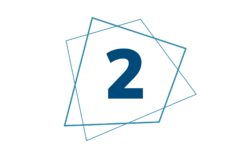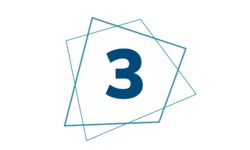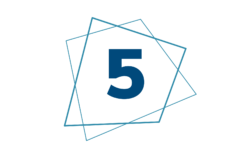In 2022, the Stevens Initiative announced support for its second sponsored research effort to investigate issues in virtual exchange design and practice. Through this effort, five independent research teams explored key areas, from the impact of virtual exchange on student success to how programs can prepare pre-service teachers to be better educators. The findings from these projects are meant to not only provide insight into ways the Initiative can improve its work, but also to serve as a resource to the field as a whole. As the Initiative evolves as a program powering a global movement for virtual exchange, this research will be critical in the creation and improvement of virtual exchange programs that reach even more young people.
Updates on each project’s findings, information about where this research has or will be disseminated, and links to the full reports are included below.

Does Virtual Exchange Shape Student Engagement, Social Capital and Tolerance? An Experimental Study among UAE and U.S.-Based Students
Author Information
- Lindsay J. Benstead, Ph.D., Associate Professor of Political Science and Director, Middle East Studies Center (MESC), Portland State University
- Kristina Katsos, Instructor, Department of International Studies, American University of Sharjah, UAE
- Sally S. Mudiamu, Ph.D., Deputy Executive Director, Office of Global Engagement & Innovation, Portland State University
- Corinne Hughes, Outreach and Program Coordinator, Middle East Studies Center, Portland State University
Project Overview
Scholars debate the impact of new technologies on social capital and tolerance. However, little research examines the impact of student interactions through virtual exchange in these areas. Using a field experiment conducted among 143 students in the UAE and the U.S. with the support of the Stevens Initiative, this research assesses how participation in a virtual exchange focused on the UN Sustainable Development Goals (SDGs) in the Middle East and North Africa (MENA) shapes tolerance and social capital. This research highlights both the potential promise of virtual exchange as well as the need to know more across a wide range of different virtual exchange contexts and models.
Findings
The results suggest that virtual exchange may support the development of tolerance and social trust, which are linked to both strong democracies as well as the conditions needed for civil and international peacemaking.
There were three statistically significant effects of the virtual exchange:
- UAE-based students developed significantly greater social capital—that is, trust of others from their society.
- U.S.-based students were more likely to agree that citizens should be informed of international issues, while UAE-based students already believed this to be the case and were thus unaffected by the exchange.
- Students in both the U.S. and the UAE were significantly less likely to state that they would like to develop friendships with people from the other country.
Full Report and Dissemination
You can access the full report documenting this research project here. This team plans to share the results of the research broadly with the goal of encouraging the adoption of virtual exchange and promoting further research into the effects of these programs and ways to improve implementation. For the latest updates, interested readers should contact the researchers listed above.

Transnational Virtual Exchange for Social Justice Education
Author Information
- Andy Carolin, Ph.D., Associate Professor, Faculty of Education, University of Johannesburg
- Lauren C. Johnson, Ph.D., Assistant Dean & Associate Professor, College of Education, University of North Georgia; Research Associate, University of Johannesburg
Project Overview
This project explores the use of virtual exchange to facilitate dialogues between students at the University of North Georgia and the University of Johannesburg on societal issues that impact education. This research investigates how virtual exchange supports pre-service teachers in navigating and engaging in social justice education to both enrich higher education institutions and to inform their own practice as educators. This project demonstrates how students in higher education can engage in intercultural dialogues focused on social justice issues that lead to critical reflection, interpersonal connection, and the further development of skills such as empathy and care.
Findings
Findings demonstrate the effective use of virtual exchange to provide pre-service educators opportunities to reflect on their and their peers’ concepts of schooling, identity, and social justice education across global contexts. This can lead to critical reflection, interpersonal connection, and the further development of skills of empathy and care. The main themes identified from the virtual sessions are:
- Through reflection on their own and others’ experiences from a comparative perspective, students highlighted similarities in the historical and ongoing racial and socio-economic systemic inequalities in both contexts.
- Students located their own desire to become teachers in their personal experiences of school, evidencing a deep investment in the ethical foundations of teaching and a growing awareness of social justice education.
- Referring to their own identities, students emphasized that language proficiency and multilingualism function as either barriers to or resources for accessing education; and race/ethnicity was their primary determinant of their educational experience.
- Students’ experiences and perspectives were shaped by the immediacy of the COVID-19 pandemic.
- Participants in this project expressed improved cultural competence, interest in global educational issues, and understanding of the ways in which in/equity and access to resources shape our experiences of schooling.
Full Report and Dissemination
You can access the full report documenting this research project here. This project has been shared in the following venues:

International Virtual Exchange Experience for Civil Engineering Students
Author Information
- Brad Putman, Ph.D., Richard E. Garman Dean and Professor of Civil & Environmental Engineering, Bucknell University
- Khaled Al-Sahili, Ph.D., Professor of Civil Engineering, An-Najah National University
- Alia Gilbrecht, Director of Virtual Exchange and Innovative Partnerships, Coordinator of Debate Education, International and External Affairs Office, An-Najah National University
- Karen Bunch Franklin, Ph.D., Teaching & Learning Specialist, Center for Teaching & Learning, Georgia Institute of Technology
Project Overview
This study assesses the value of a five-week, collaborative international virtual exchange project on civil engineering students enrolled in cross-cultural pavement design or environmental engineering courses at Clemson University, Bucknell University, and An-Najah National University. Students in these courses were tasked to develop innovative solutions to a pavement related-problem in teams. This study investigated two treatment groups: teams participating in international virtual exchange and teams who did not. The evaluation in this study focuses on team dynamics, global competencies, and perceived value of the experience. It demonstrates that working on a team with peers from another country and culture broadened students’ perspectives and forced them to navigate differences while working together on a common goal.
Findings
Students on international virtual exchange teams demonstrated greater gains in team performance and global competencies over the project duration than their peers. These gains were found to be, in large part, the result of cross-cultural dialogue sessions incorporated as part of the international virtual exchange version of the project. Palestinian students, regardless of whether they were on an international virtual exchange team or not, perceived greater value of the project experience than American students.
It is critical that engineers not only have technical expertise, but also are able to work on diverse teams, effectively communicate with broad audiences, have a global perspective, and consider the implications of their solutions on users and society as a whole. Engineering students who participated on an international virtual exchange team in this project demonstrated significant growth in these areas, showing that the international virtual exchange experience has the potential to make them better engineers.
Full Report and Dissemination
You can access the full report documenting this research project here. This project has been or will be shared in the following venues:
Conference Proceedings
- Putman, B.J., Al-Sahili, K., Gilbrecht, A., Franklin, K.B., Girish, S., Leiva, F., and Khader, A., “Assessment of an International Virtual Exchange Project with Civil Engineering Students from the US and Palestine: Global Competencies, Perceived Value, and Teamwork,” 2023 ASEE Annual Conference & Exposition, Baltimore, MD. (2023)
- Putman, B.J., Al-Sahili, K., Gilbrecht, A., and Franklin, K.B., “Enhancing Global Competencies Through Cross-Cultural Dialogue in International Virtual Exchange,” International Conference on Debate and Dialogue, Doha, Qatar. (2023)
Conference Presentations
- Gilbrecht, A., Cheikhrouhou, N., Putman, B.J., and Al-Sahili, K., “A Toolkit for Integrating Intercultural Dialogue and Collaborative Learning in an IVE Experience,” 26th Annual Colloquium on International Engineering Education, Alexandria, VA. (November 2-3, 2023)
- Putman, B.J., Al-Sahili, K., Gilbrecht, A., and Franklin, K.B., “A Viable Approach to Attain ABET Student Outcomes Through International Virtual Exchange,” 26th Annual Colloquium on International Engineering Education, Alexandria, VA. (November 2-3, 2023)
- Putman, B.J., Al-Sahili, K., Gilbrecht, A., Franklin, K.B., Girish, S., Leiva, F., and Khader, A., “Assessment of International Virtual Exchange with Engineering Students from the US and Palestine: Educational Needs and Learning Opportunities in a Conflict Zone,” International Virtual Exchange Conference 2023, São Paulo, Brazil. (October 30-November 1, 2023)
- Putman, B.J., Al-Sahili, K., Gilbrecht, A., Franklin, K.B., Girish, S., Leiva, F., and Khader, A., “Assessment of an International Virtual Exchange Project with Civil Engineering Students from the US and Palestine: Global Competencies, Perceived Value, and Teamwork,” 2023 ASEE Annual Conference & Exposition, Baltimore, MD. (June 27, 2023)
- Putman, B.J., Al-Sahili, K., Gilbrecht, A., and Franklin, K.B., “Enhancing Global Competencies Through Cross-Cultural Dialogue in International Virtual Exchange,” International Conference on Debate and Dialogue, Doha, Qatar. (May 29-30, 2023)
- Putman, B.J., Al-Sahili, K., Gilbrecht, A., and Franklin, K.B., “Development of Pre-Engagement Modules to Promote Effective Intercultural Competency Through Cross-Cultural Dialogue for International Virtual Exchange (IVE),” 25th Annual Colloquium on International Engineering Education: Connecting Engineering with the Humanities. (November 2, 2022)
- Franklin, K.B., Putman, B.J., Al-Sahili, K., Gilbrecht, A., “Leveraging International Virtual Exchange to Cultivate DEI within Global Learning,” 2022 AAC&U Virtual Conference, Transforming Global Learning Practice: Time for Action, AAC&U. (October 12, 2022)

The ABCs of Young People and Virtual Exchange: Access, Benefits, and Content
Author Information
- Nael H Alami, Ph.D., Associate Professor, Director, Virtual Exchange Program; Vice President, Modern University for Business and Science
- Loye Sekihata Ashton, Ph.D., Vice President of Partnerships and Chief Academic Officer, Class2Class
- Samantha A-Saab, MSES, Research Associate, Modern University for Business and Science
- James Elwood, Ph.D., Professor, Faculty of Interdisciplinary Mathematical Sciences, Meiji University
- Kwesi Ewoodzie, Ph.D., Founder and Director, Culture Beyond Borders
- Mirjam Hauck, Ph.D., Associate Head of School (Internationalisation, Equality, Diversity and Inclusion), The Open University
- Liudmila Klimanova, Ph.D., Assistant Professor, School of International Languages, Literatures, and Cultures, College of Humanities, University of Arizona
- Linda Caroline Plowright-Pepper, Ph.D., Affiliated Researcher, WELS, The Center for Children and Young People’s Wellbeing, The Open University
- Muge Satar, Ph.D., Director of Internationalization, School of Education, Communication, and Language Sciences, Newcastle University
Project Overview
Virtual exchange has emerged as a popular learning tool to promote intercultural understanding, global competency, and collaboration among K-12 students. This study meets a need for more research on the impact of virtual exchanges that take equity, diversity, and inclusion (Kastler and Lewis, 2021) and social justice lenses at K-12 institutions. This research explores content younger learners engage with in their exchanges, implementation challenges educators experience, and recommendations for implementing successful exchanges. Educators, coordinators, organization representatives, school administrators, and students were interviewed in the following regions: Middle East and North Africa (MENA), South and Latin America, Central Asia, Europe, Africa, and East Asia.
Findings
The data suggest that different regions share a number of common challenges and diverge on a number of region-specific hurdles to overcome the lack of virtual exchange initiatives at K-12 level. Common challenges include building support from administrators through advocacy, highlighting successful exchanges, and providing resources and training for educators. Specific regional challenges included:
- Educators from Africa (Uganda, Kenya, Rwanda, and South Africa) highlighted a number of challenges to introducing virtual exchange in K-12 schools: 1) overcoming culturally-based concerns of parents; 2) ensuring that parents and teachers are technologically skilled; and 3) getting virtual exchange proponents to be culturally sensitive.
- In Central Asia most public schools are not connected to international exchange networks, teachers are not accessible via direct emails and invitations, and governments have heavy-handed involvement in international projects.
- In Europe, challenges were reported in language level and assessment differences, as well as racial and political challenges where African or Chinese students faced some level of discrimination.
- There were more public schools involved in virtual exchange programs than private schools in the MENA region. Securing parental consent, especially for female participants, was a challenge in conservative communities.
- Significant challenges reported by educators in South and Latin America included lack of flexibility, increased demands of (new) skills, and time investment.
- The interview in East Asia highlighted challenges in technological resources, especially with underserved schools.
The full report includes suggestions for growing the field of virtual exchange in these regions, including working with policy makers to promote the benefits of virtual exchange programs, directing resources to capacity building, and incentivizing practitioners, among others.
Full Report and Dissemination
You can access the full report documenting this research project here. This project has been or will be shared in the following venues:
- International Virtual Exchange Conference 2023, Oral presentation, “The ABCs of Young People and Virtual Exchange: Access, Benefits, and Content.”
- Center of Excellence in Research, Education, and Cultural Studies (CEREC) seminar series: The team will present the results of the study at the CEREC seminar series in Beirut, Lebanon, to an audience of educators and researchers interested in Education and Cultural Studies in July 2023. Title: “Virtual Exchange as a Tool for Building Bridges.”
- A publication by research-publishing.net featuring these case studies (in preparation).

Exploring the use of international virtual exchange to develop intercultural competencies using UNESCO Story Circles
Author Information
- Penny Orton, Ph.D., COIL Specialist/Honorary Research Fellow, International Education and Partnerships/Faculty of Health Sciences, Durban University of Technology
- Divinia Jithoo, Specialist: International Education, International Education and Partnerships, Durban University of Technology
- Philiswa Priscilla Mncube, International Students Relations Officer, International Education and Partnerships, Durban University of Technology
- Savo Heleta, Ph.D., International Education Specialist, International Education and Partnerships, Durban University of Technology
Project Overview
This research explores whether the Story Circles methodology could assist students involved in the collaborative online international learning (COIL) model of international virtual exchange to develop intercultural competencies. The research assessed university students involved in virtual exchanges between Durban University of Technology and its international partners, including some exchanges that used the Story Circles methodology. Through a multi-phased research methodology, data was collected through an online survey of students and interviews with academics. The research was conducted at Durban University of Technology and partner universities from Mexico, United States, and Venezuela that collaborated on virtual exchange projects.
Findings
Project findings show that students who participated in the virtual exchange programs (both those which incorporated Story Circles and those that did not) had good motivational cultural intelligence (CQ), meta-cognitive CQ, and behavioural CQ, but weaker cognitive CQ. The qualitative data and findings highlight the need to engage with academics and international partners working on virtual exchange projects on more effective planning, preparation, and provision of intercultural learning in projects through the use of Story Circles. Most importantly, findings indicate that there is a need for providing sufficient time and meaningful content and methods for students to practice intercultural learning and engagement in the virtual exchange, particularly if the intention is to use Story Circles as a methodology to develop intercultural competencies.
Full Report and Dissemination
You can access the full report documenting this research project here. This project has been shared in the following venues:
Conference Proceedings
- Orton, P. & Heleta, S. Exploring the use of virtual exchange to develop intercultural competencies using UNESCO Story Circles – a preliminary report. virtual exchange C 2022 – International Virtual Exchange Conference. Valencia, Spain. 26 October 2022.





